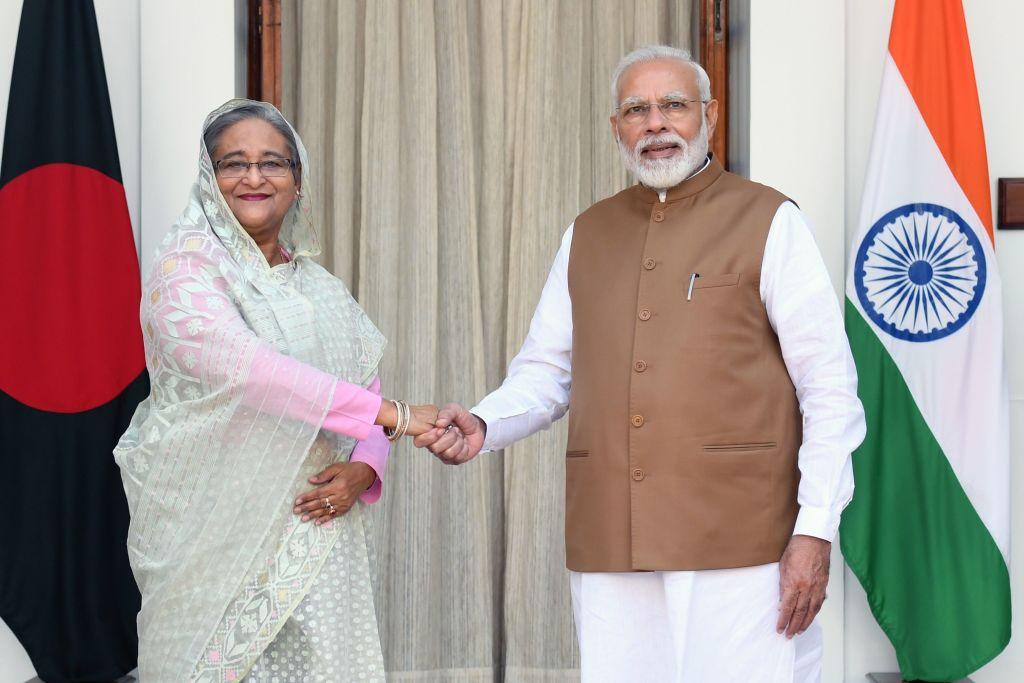India’s efforts to ward off Chinese influence in its backyard got a major boost with the signing of seven deals with Bangladesh, its Southern Asian neighbor, on Oct. 5.
The signings followed a visit by Bangladeshi Prime Minister Sheikh Hasina to India. The agreements included adopting a standard operating procedure on India’s use of the Chattogram (also known as Chittagong) and Mongla ports in Bangladesh.





